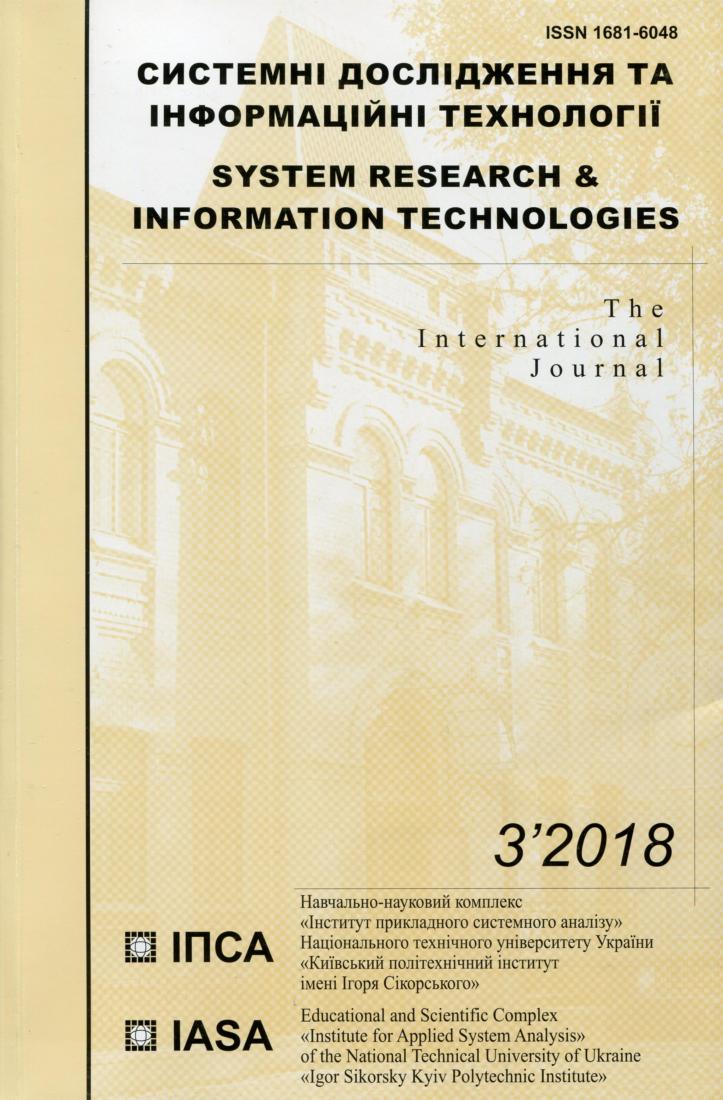Remote patient monitoring based on the agent–group–role concept
DOI:
https://doi.org/10.20535/SRIT.2308-8893.2018.3.01Keywords:
diagnostics, remote monitoring, organizational multi-agent system, agent, group, roleAbstract
A multi-agent system for remote assessment of a person's health status was developed using the example of monitoring the patient's blood pressure. The system allows us to respond urgently to a critical change in patient's health status in order to provide emergency medical care. A method for coordinating agents in the system of assessing the person's condition is proposed, which allows for each registered patient to distribute tasks among agents for the timely detection and elimination of critical health conditions of the patient. To describe the multi-agent system, the Agent-Group-Role concept was used, which allowed the development of an adaptive organizational model for the remote monitoring process. The analysis of the data obtained during the monitoring of the patient's health was carried out using the Leadsto Editor software modeling.References
Lützenberger M. Multi-Agent System in Practice: When Research Meets Reality / M. Lützenberger // Proceedings of the 2016 International Conference on Autonomous Agents & Multiagent Systems. — International Foundation for Autonomous Agents and Multiagent Systems. — 2016. — P. 796–805.
Beklaryan A.L. Simulation of Agent-rescuer Behaviour in Emergency Based on Modified Fuzzy Clustering / A.L. Beklaryan, A.S. Akopov // Proceedings of the 2016 International Conference on Autonomous Agents & Multiagent Systems. — International Foundation for Autonomous Agents and Multiagent Systems. — 2016. — P. 1275–1276.
Rosati S. A multi-agent system for monitoring patient flow / S. Rosati, A. Tralli, G. Balestra // Studies in health technology and informatics. — 2012. — T. 192. — P. 944–948.
Wang C. Multi-agent continuous transportation with online balanced partitioning / C. Wang, S. Liemhetcharat, K.H. Low // Proceedings of the 2016 International Conference on Autonomous Agents & Multiagent Systems. — International Foundation for Autonomous Agents and Multiagent Systems. — 2016. — P. 1303–1304.
Alechina N. Decentralised Norm Monitoring in Open Multi-Agent Systems / N. Alechina // Proceedings of the 2016 International Conference on Autonomous Agents & Multiagent Systems. — International Foundation for Autonomous Agents and Multiagent Systems. — 2016. — P. 1399–1400.
Li W. Intelligent Multi-Agent System for Power Grid Communication / W. Li // Region 10 Conference (TENCON). — IEEE. — 2016. — P. 3386–3389.
Ferber J. A meta-model for the analysis and design of organizations in multiagent systems / J. Ferber, O. Gutknecht // Proceedings of ICMAS’98, IEEE Computer Society Press. — 1998. — P. 128–135.
Axak N.G. Development of multi-agent system of neural network diagnostics and remote monitoring of patient / N.G. Axak // Eastern-European Journal of Enterprise Technologies. — Vol. 4, N 9(82). — 2016. — P. 4–11.
Bosse T. LEADSTO: a Language and Environment for Analysis of Dynamics by SimulaTiOn / T. Bosse, C.M. Jonker, L. van der Meij, J. Treur // In: Proceedings of MATES' 05. LNAI 3550. Springer Verlag, 2005. — P. 165–178.

